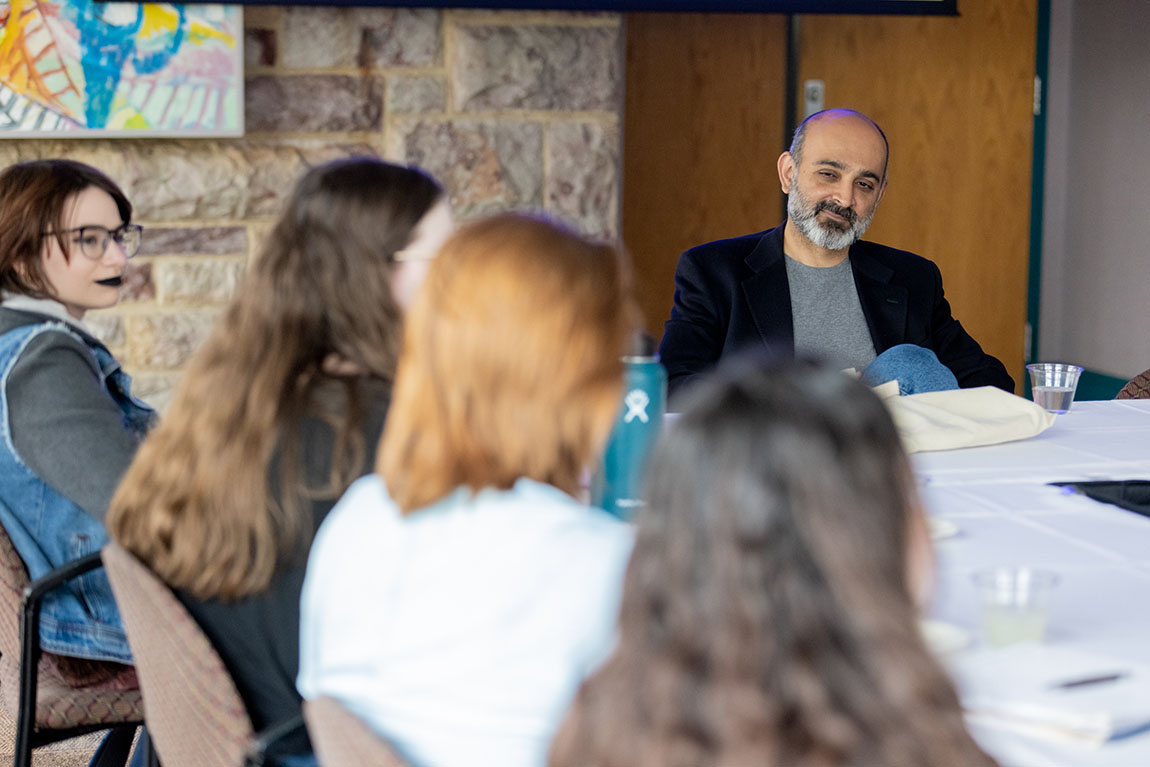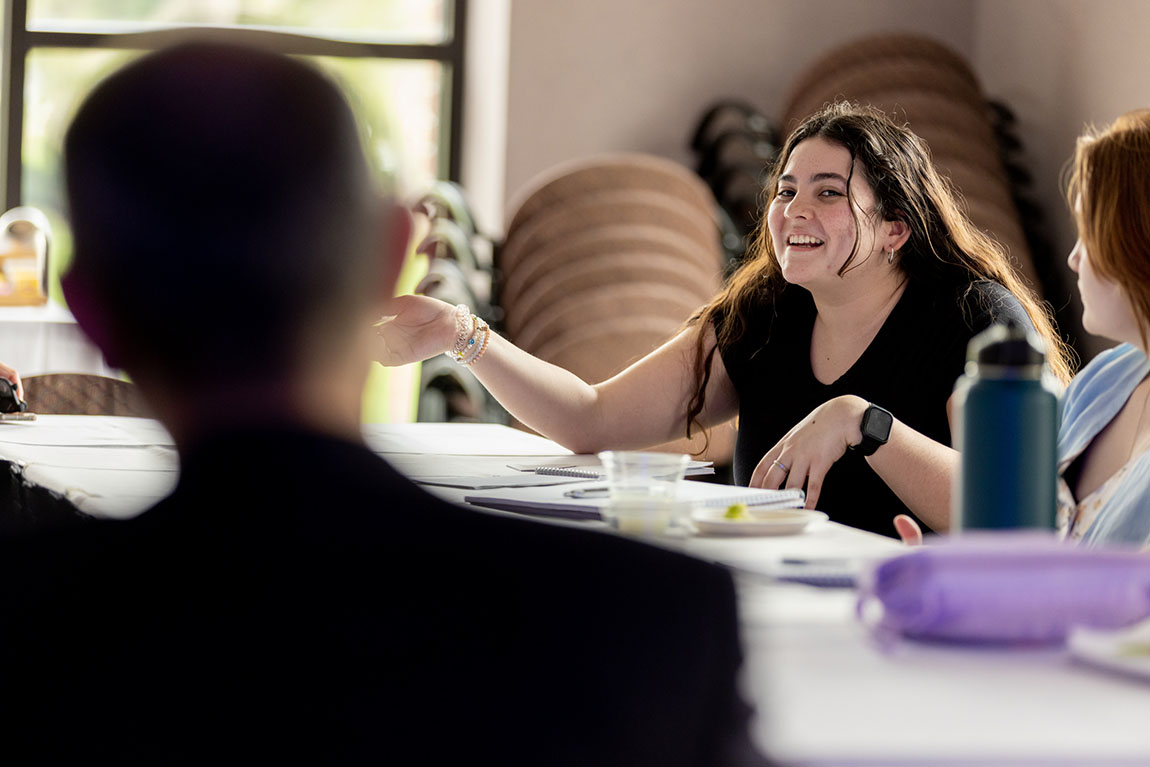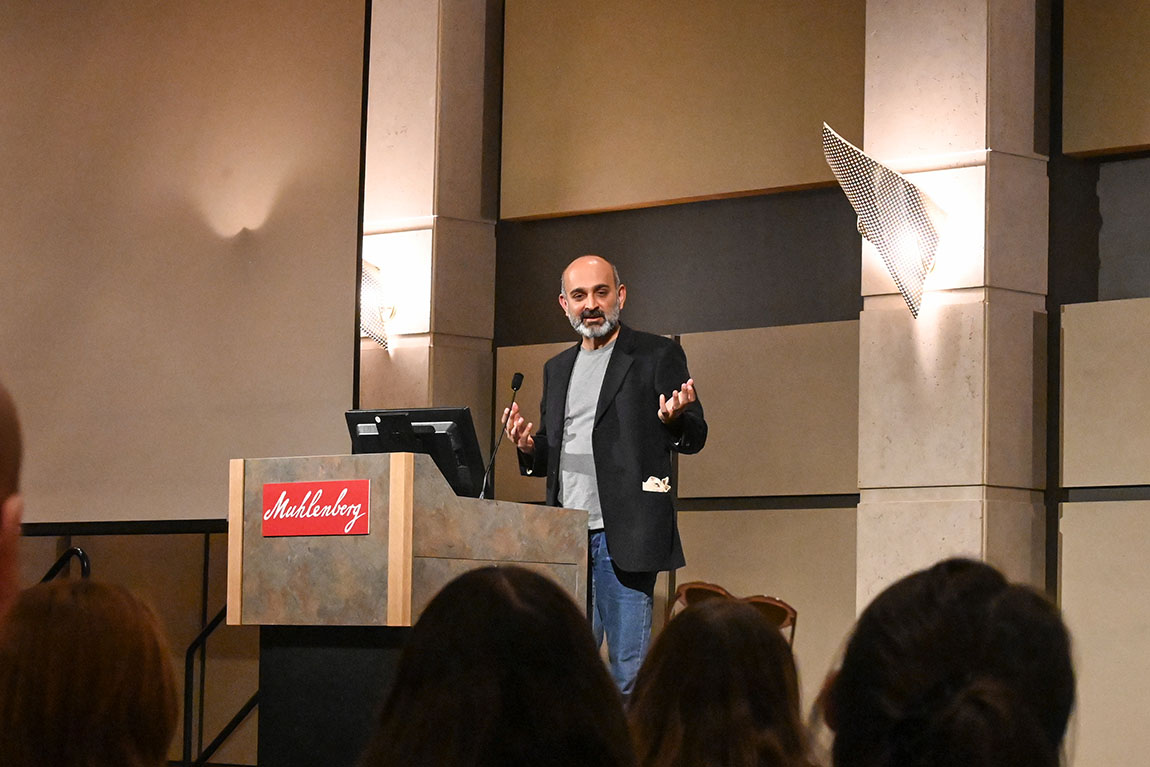Creative Writing Students Converse With Author Mohsin Hamid
The novelist, on campus Tuesday for a public lecture in the evening, spent the afternoon fielding questions from and making connections with a small group of students, faculty and staff.By: Meghan Kita Friday, April 14, 2023 00:31 PM
 Novelist Mohsin Hamid meets with creative writing students in the afternoon before delivering a public lecture that evening. Photos by Marco Calderon
Novelist Mohsin Hamid meets with creative writing students in the afternoon before delivering a public lecture that evening. Photos by Marco CalderonOn Tuesday evening, British Pakistani novelist Mohsin Hamid — author of Exit West, The Reluctant Fundamentalist and, most recently, The Last White Man — visited campus for a public lecture that packed Moyer Hall’s Miller Forum. But earlier in the day, a small group of creative writing students had the opportunity to connect with Hamid during a Q&A held in the GQ Annex.
Hamid began the discussion, which was open to all English & creative writing majors and creative writing & journalism minors, by telling the students, “This session is a chance to have a conversation.” He asked each of them their names, fields of study and goals as writers, taking a few minutes with each student to ask follow-up questions and reflect on what they’d shared.
The students then had the opportunity to ask Hamid about his work and his journey toward becoming a writer. The seniors in the group had specific questions about Exit West, the Common Read for the 2019-2020 academic year, that they’d held on to since they were first-year students — Hamid’s first two attempts to visit campus were stymied by the start of the pandemic and then the rise of the Omicron variant.

Alex Caban-Echevarria ’23, a double major in media & communication and English, asks Hamid a question during the session
Associate Professor of English Dawn Lonsinger, who introduced Hamid to the group, asked a question she frequently hears students wondering: How did you know you could become a writer?
“When I came to college, I liked reading books, but I didn’t know anybody who was a writer. Books existed — obviously somebody must have written them. But I could’ve more easily imagined being in the Olympics,” Hamid said. “You could imagine how you’d get there … How you even became a writer was completely outside my imagination.”
He began his first novel as a Princeton University undergraduate, where he took creative writing classes with Joyce Carol Oates and Toni Morrison: “The biggest gift of those classes was, they gave me permission to imagine I could do it,” he said. “That’s all you really need. Every writer needs to find a way to give themselves permission to be a writer.”
It took him seven years to finish his first novel, Moth Smoke, which he began as an undergrad, worked on throughout Harvard Law School and completed as he worked as a consultant. As he earned promotions, he negotiated working less over making more money, and he used that extra time to write. Making time, he told the students, is the most essential step in becoming a writer.
“The funny thing with writing is something starts happening when you’re doing it every day,” Hamid said. “Sometimes, in the arts, we imagine there’s this inspiration thing to it, and there sort of is. But I think that actually, the arts are, in a sense, much more like the professions of labor, being a bricklayer or a carpenter. You go to work every day, you put in your hours, and something gets built. Being a writer is like that: You show up, put in the hours, do your work and you make books.”

Hamid speaks during the evening public lecture. Photo by Tom Amico
“The main takeaway that I’ll use in my writing today from the talk is how to put in the work to make creative writing my career,” Jules Curtis ’25, a theatre and English & creative writing double major, said after the Q&A session. “It gave me the confidence that no matter what path I take as a writer, I have the power to make it into my career, especially hearing that he did not start as a writer and changed his path. I’m a person who wants to do a lot of different things in life, and it was good to hear that he was able to change career paths in a stable way.”
